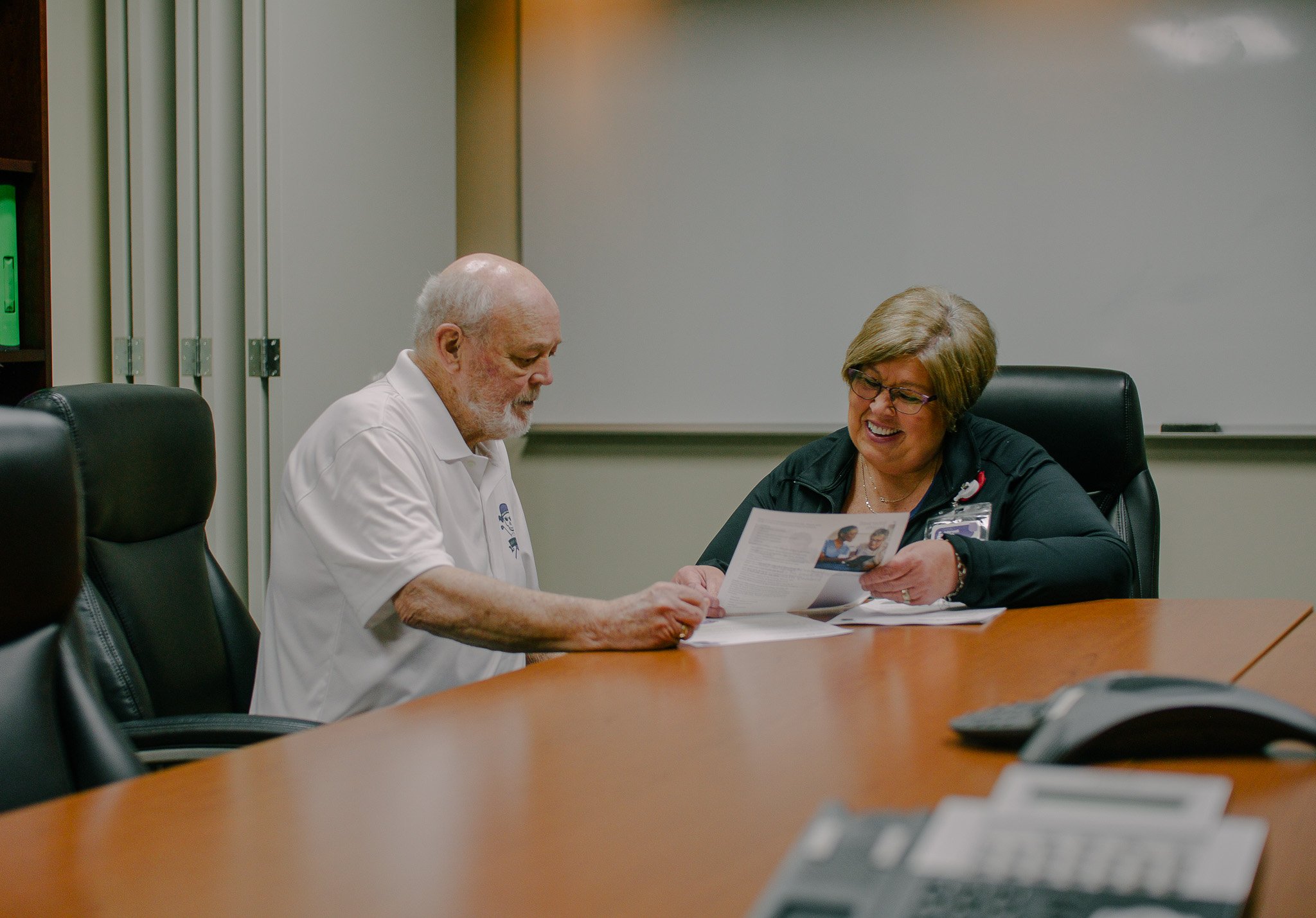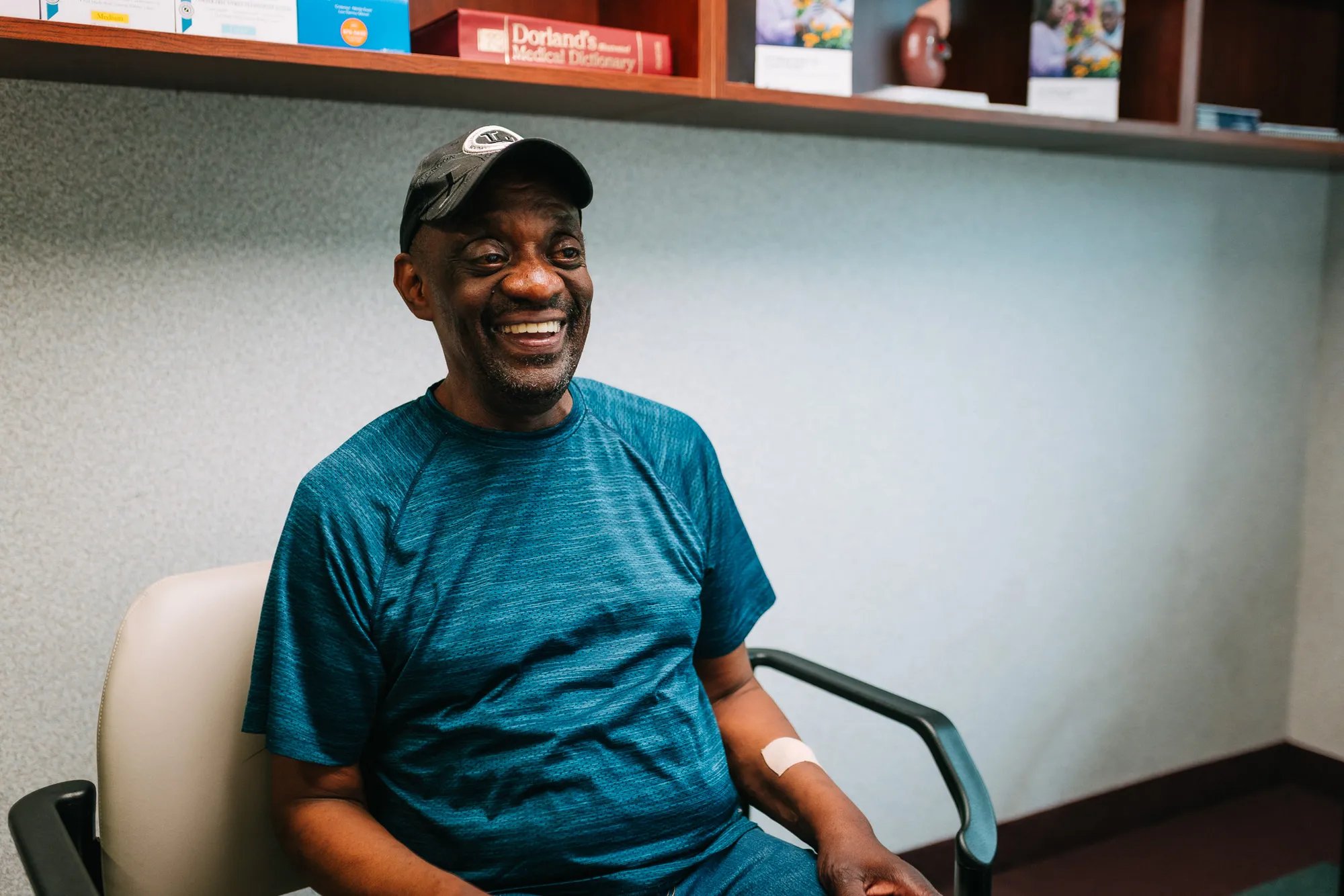In Value-Based Kidney Care, Renal Care Coordinators are Invaluable
Renal care coordinators transform patients’ lives and help practices achieve quality metrics by delivering compassionate, personalized support in value-based care programs.
tags

As nephrology practices increasingly participate in value-based kidney care programs, renal care coordinators (RCCs) have emerged as core team members who enhance patient outcomes while supporting practice efficiency. These dedicated professionals fill multiple gaps across the care continuum, providing the comprehensive support that traditional fee-for-service models often lack.
Understanding the RCC role: more than care coordination
Renal care coordinators serve as patient advocates, educators, and navigators throughout a patient’s kidney care journey. Yolanda Peay previously cared for patients as a staff nurse, acute care nurse, and clinical manager before joining Interwell Health as an RCC, a role she filled for eight years until stepping into her current position as an RCC leader. She says being an RCC was the best job she ever had. “You know what a difference you’re making with the patients,” she says. “Seeing a patient have one of those ‘a-ha’ moments, that is the best.”
Peay describes the RCC role as ever-changing to meet the needs of each individual patient. “We’re not scripted; we’re not put in a box. Every patient interaction is different. We become who we need to be to help that patient get to where they need to go,” she says.
To meet patients’ needs, the scope of RCCs’ responsibilities extends far beyond traditional care coordination:
- Patient education: RCCs provide comprehensive education about chronic kidney disease (CKD), treatment options, and lifestyle modifications. Patients often have little to no education on CKD when they first arrive in nephrology care. Dedicated CKD education helps patients understand their disease stage, empowers them to slow their disease progression, and prepares them for future decision-making on how they choose to continue their care.
- Care navigation and coordination: RCCs guide patients through complex healthcare systems, not only collaborating with practice clinicians and staff, but also coordinating appointments with vascular surgeons, transplant centers, and dialysis facilities. In addition, Interwell RCCs connect patients with local community groups, behavioral health resources, and additional Interwell interdisciplinary care team members including dietitians, transportation coordinators, and social workers.
- Optimal start facilitation: One of RCCs’ most critical responsibilities is ensuring that patients have access to the treatment modality of their choice before their kidneys fail. RCCs start conversations on transplant early to allow time for interested patients to complete the referral process and get waitlisted or find a donor. RCCs also coordinate vein mapping and vascular access procedures, improving the likelihood of a patient achieving an optimal dialysis start without an emergency intravenous catheter if dialysis is needed.
- Practice support: By handling time-intensive patient education and coordination tasks, RCCs help reduce nephrologists’ administrative burden, allowing them to focus on clinical decision-making. While RCCs in Interwell partner practices are employed by Interwell, they become as much a part of those practices as the rest of the clinicians and staff, completely and seamlessly integrating into clinical and administrative workflows.
The RCC’s role may differ from day to day and patient to patient, but their focus always remains on meeting patients’ needs. RCC leader Peay constantly reminds her team that it’s the human side of patient care that matters most. “We make sure patients arrive at the place that’s best for them, and everybody’s place is not going to look the same and everybody’s journey is not going to look the same,” she explains.
The strategic value of RCCs in value-based care
The traditional fee-for-service model compensates providers for the quantity of services delivered, rather than the quality and outcomes of that care. With the focus on episodic care in fee-for-service models, providers often don’t have the resources to support care coordination and holistic kidney care.
In contrast, value-based care reimburses providers for delivering better outcomes at lower costs and encourages the use of resources to improve care coordination. As a value-based kidney care provider, Interwell offers RCCs as a benefit to partner practices involved in certain value-based care programs, including the government’s Kidney Care Choices (KCC) Model.
In value-based care models, practices strive to achieve quality metrics set by the Centers for Medicare & Medicaid Services (CMS) and commercial payers to demonstrate how they are improving patient outcomes. By focusing on preventive measures and early interventions that preserve kidney function and delay disease progression, RCCs help practices achieve the quality metrics that drive success, including:
- Higher rates of optimal starts
- Reduced avoidable hospitalizations
- Increased transplant referrals and evaluations
- Better medication adherence and lifestyle modifications
- Enhanced patient satisfaction
“We decided to bring in an RCC when we first partnered with Interwell in the current government value-based kidney care program. To be honest, without an RCC I don’t know how this program would work, because the RCCs do so much in terms of increasing optimal starts and engaging family members,” said Dr. William McElhaugh, a nephrologist at Kidney Care Specialists. He says the practice has improved patient engagement, compliance, and outcomes since adding RCCs.
From her perspective as an RCC embedded with Kidney Care Specialists, Jane Wardrip says supporting the practice and its patients starts with building relationships and trust. “I let people talk,” she says. “Talking creates a bond that helps people open up for what can be difficult conversations about the decisions they need to make for the future. I meet patients where they are and try to use different tools and resources to help them understand their disease and options.”
.webp?h=1333&iar=0&w=2000)
Rex’s story
For patients, having an RCC in their corner can be nothing short of life changing. Interwell patient Rex Buckway credits his RCC Zoe Cole with changing his life through home dialysis education and support. After earning her certified nursing assistant (CNA) certification, Cole worked in an assisted living facility, nephrology practice, and dialysis unit before joining Interwell as an RCC. When she first met Rex, his transplanted kidney had recently stopped working and he was hoping for a second transplant only to find he wasn’t a candidate and would need to restart dialysis.
“Rex was reluctant to start dialysis after his experience with in-center dialysis prior to his transplant more than 20 years ago,” says Cole. “We had multiple conversations on his options, and he eventually decided on home hemodialysis. I was so happy when Rex finally started home dialysis. We still talk quite frequently, and I’ll go to see him while he’s at our home clinic just to see how he’s doing.”
Rex says Cole spent hours talking to him about his care plan and guiding him on his treatment options. “It was Zoe from Interwell Health who sat in on my doctor’s appointments. She is the reason I’m doing home dialysis, and it changed my life,” says Rex.
Read how Interwell RCC Zoe Cole helped Rex redefine life with dialysis by starting treatment at home

Ray’s story
With more than 25 years of experience in patient care, including in dialysis clinics, Interwell RCC Kathy Galloway has come to understand patients’ fears and where they most need support. “My patients mean something,” she says. “I want to treat them just like I would my family and make sure that I give them all of the education resources and 100 percent of myself.”
Galloway began working with Ray Virgo when he initially enrolled in the Interwell 360 patient engagement program. “I was really able to do more education with Raymond and follow him from step one,” she says. Galloway worked with Ray to manage his CKD through diet and lifestyle, educate him on his treatment options, and eventually help him undergo a successful preemptive kidney transplantation.
Ray says Galloway helped him understand his disease and was always just a phone call away if he ever had questions or ran into any issues. “There were so many things special about her. She was caring, number one. She always kept in touch and would call to make sure we’re doing okay,” he says.
At Interwell, RCCs are the backbone of patient care
As part of a comprehensive kidney care model, Interwell embeds RCCs in more than 50 nephrology practices across the country that are focused on delivering value-based care. Embedded RCCs meet face-to-face with patients every day and regularly stay in touch with patients by phone. These check-in moments can be as important as scheduled appointments, ensuring patients stay on track with their care plans and that nothing falls through the cracks between visits.
Since initially launching the RCC program to support CMS’s KCC Model, Interwell has expanded the program to support patients in both government and private contracts. Interwell also supports more than 30 nephrology practices with telephonic care coordination support. While virtual care has always been part of Interwell’s care model, it is a relatively new part of the RCC program. The expansion into virtual care coordination is successfully enabling wraparound, personalized support for even more patients, with patient engagement* up nearly 20 percent in the first three months of the telephonic RCC program.
“Our frontline staff is our greatest asset,” says Tysha Dunavant, Interwell senior director of clinical operations. “If we can hold patients’ hands through their kidney care journeys and, at the end of the day, they feel they had a better experience because of our team, that’s exactly why we’re there."
To learn more about Interwell’s RCC program and comprehensive care model, visit our website.
*Patient engagement is defined as patients engaged in active interventions with Interwell RCCs.